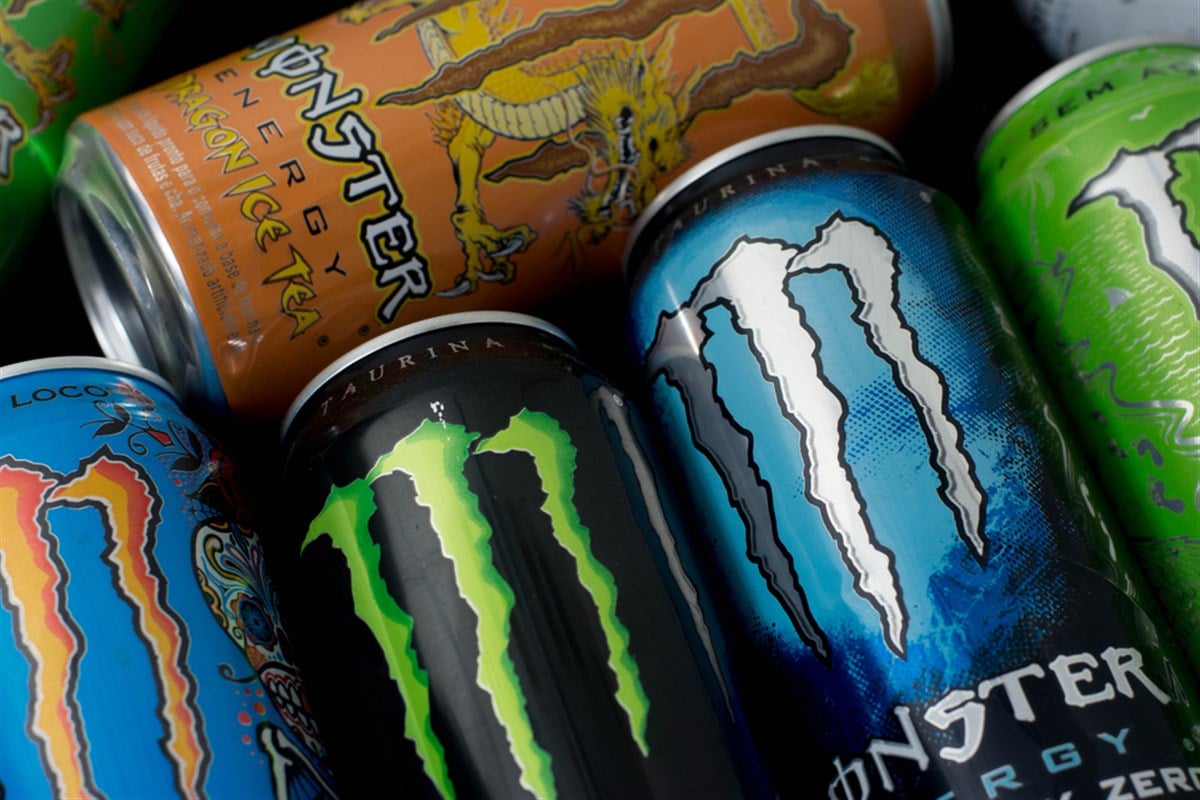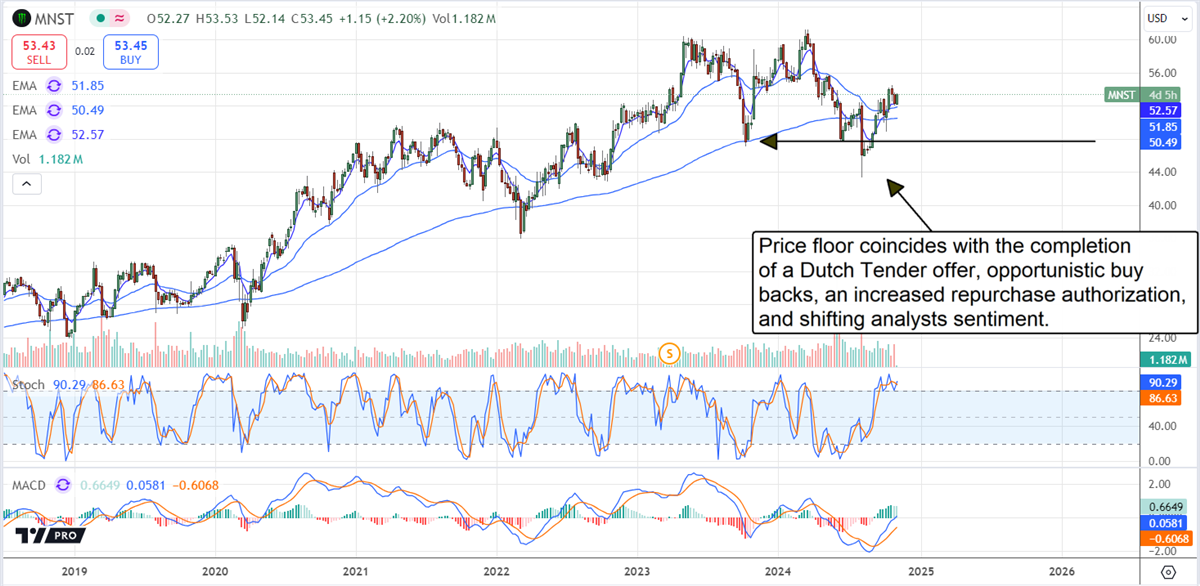
Monster Beverage (NASDAQ: MNST) is the leading player in energy drinks, trading at a discount to its growth opportunity. The company and market face headwinds in 2024, with consumers impacted by higher interest rates, but long-term trends suggest the energy drink market will thrive over the next decade and Monster along with it.
The estimates vary, but all are bullish, pointing to a mid-single-digit to low-double-digit industry CAGR over the next six to eight years, nearly doubling at the low-end range. That is a powerful tailwind for this company, which is also growing its distribution range, addressable market, and penetration. It is expected to grow at an industry-leading pace that puts its P/E relative to 2030 well below 15x and industry norms. Mature peers, including Keurig Dr Pepper (NASDAQ: KDP), PepsiCo (NASDAQ: PEP), and The Coca-Cola Company (NYSE: KO), are trading in a range of 16x to 22x current year earnings and at the low-end of historical ranges, suggesting a significant value remains for investors.
Monster Beverage Headwinds Mask Core Strengths
Monster Beverage’s primary headwind in 2024 is FX conversion specifically linked to Argentina. The company has experienced raging inflation for years, only recently cutting its base rate to 35% as the outlook for inflation began to ease. The critical detail is that the value of the Argentine peso plummeted over the past few years, hitting a multi-decade low in 2024, and hitting companies across sectors and industries. The takeaway is that Monster Beverage’s tepid 2.7% growth in Q2 is due to FX conversion; FX neutral growth topped 6% despite the sluggish consumer atmosphere and 7.4% in the core business ex-alcohol. The Q3 results will likely reflect similar metrics, including solid cash flow and earnings.
Margin news is mixed in 2024 but favorable to investors, with gross margin gains offsetting increased expenses and earnings per share aided by a reduced share count. The gross margin improved by 90 basis points, offset by a 160 bps increase in operating expenses. Operating expenses increased in all categories but were insufficient to impair cash flow and capital return. The company’s cash flow is growing, allowing it to repurchase shares significantly. The company’s Dutch Tender Offer and opportunistic buybacks reduced the count by 2% on average in Q2, and additional buys were made since the quarter’s end. Those, and the new authorization issued in late summer, top $1 billion or about 2% of the market cap, with shares trading near $53.50.
And Monster’s balance sheet is a fortress. The Q2 highlights include a significant cash, assets, and equity reduction due to the repurchase activity and reduced share count, but balance sheet health is robust. The company’s debt is about 0.5x cash and about 0.15x equity, leaving it in a lean and agile condition, able to invest in growth opportunities as they arise. The word coming out of the National Association of Convenience Stores trade show is that Monster is doubling down on marketing initiatives, including $1 drink promotions, ahead of an expected improvement in convenience store traffic.
Analysts Put a Floor in Monster Beverage Stock
The analysts' activity immediately after the Q2 release was bearish, aiding the summer downdraft in price action. However, the downdraft resulted in a buying opportunity highlighted by the company’s repurchase activity and the analysts' revisions since are better. Those include several price target increases that halted the downtrend in the consensus, removing a headwind for the market. The consensus reported by MarketBeat.com is more than 6.5% above the critical support target and recent price action, suggesting a rebound could begin soon, possibly catalyzed by the Q3 results.
The critical detail for technicians is that the target for critical support aligns with a cluster of moving averages near $51.75. The cluster provides a strong support target that is likely to stay strong, given the outlook for growth, the balance sheet health, and capital return. The likely scenario is that this market will consolidate in the mid-50s before moving up to new highs later this year or early in 2025 as consumer trends improve.

